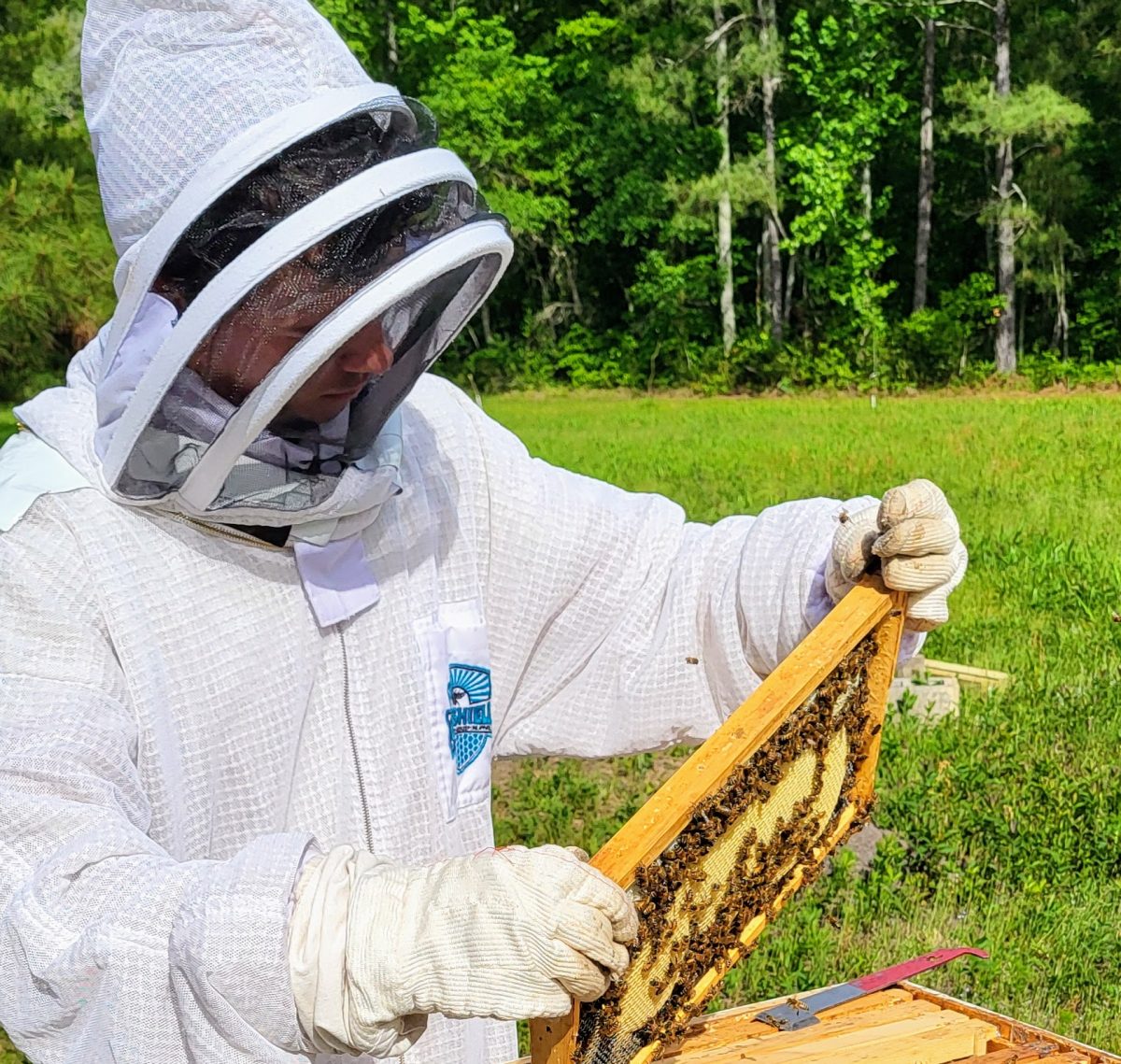Coastal Carolina University students gathered in Britain Hall on Thursday, Sept. 14 to learn the harmful reality the fast fashion industry imposes on society.
Erin Hall, fashion designer and small business owner, titled the lecture “Fast Fashion is Trash, Literally,” to reflect the 81.5 pounds of clothing an average person discards each year.
Hall began the lecture by asking the audience if anyone was currently wearing fast fashion. She said fast fashion is any low-priced but stylish clothing that quickly moves from design phase to retail market. Many hands were raised, and it demonstrated how prevalent the issue of fast fashion is in society.
Student Jordyn Hendry attended the lecture for a class and also an interest in fashion.
“I had always thought fast fashion was more like Shein, that kind of stuff. I didn’t realize how many companies were actually fast fashion,” Hendry said. “I think I’ll try to reuse more clothes than buying a dress for just one specific occasion.”
Hall said 97% of all clothes sold in the U.S. are imported from offshore manufacturing centers. Offshore manufacturing saves companies millions of dollars, she said, because they can cut costs by utilizing lenient environmental regulations and labor policies in developing Latin America and Asian countries.
Hall said Polyester surpassed cotton as the most in demand fiber in the early 2000s and, as it is thermoplastic rather than a natural fiber, is the largest contributor of chemical waste in all textile production. She said in India there are 45 million garment workers, four out of five are women, making about $180 each month.
While cutting these costs increased profit margins for retail corporations, the quality of the clothes and ethical standards of the producer and consumer are decreased.
“Fashion companies are already responsible for 8-10% of global greenhouse gas emissions,” Hall said, “and that is more than maritime shipping and aviation combined.”
Hall passed around various pieces of clothing from fast fashion retailers and ethical retailers to demonstrate the difference in quality. The ethically made pieces were sturdy, the stitches were neat and tight and natural fibers were used. The fast fashion pieces were thin and weightless, the stitches and threads were loose, and they were made of polyester.
Student Trace Nussbaumer said he learned what defines something as fast fashion and how to not be a part of the problem.
“I’m not someone who shops all that much, but when I do, looking for those smaller companies, wearing things for longer, not going and buying things ‘just because,’” Nussbaumer said.
The lecture also provided some suggestions on how to improve the fast fashion industry by making personal changes. Hall said to start asking companies, whether it be an email or direct message on Instagram, to relocate their manufacturing facilities back to the U.S.
She said to start looking at labels to know where it came from and how it was made. Clothing made from natural fibers get better with age, while synthetic fibers pollute the environment at every stage of the garment’s life.




















